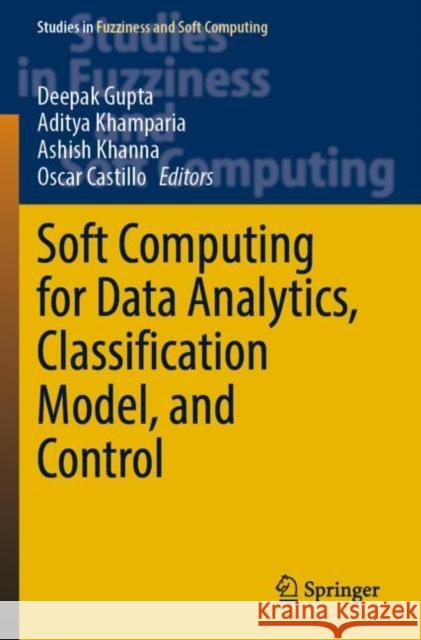Soft Computing for Data Analytics, Classification Model, and Control » książka
Soft Computing for Data Analytics, Classification Model, and Control
ISBN-13: 9783030920289 / Angielski / Miękka / 2023 / 165 str.
Soft Computing for Data Analytics, Classification Model, and Control
ISBN-13: 9783030920289 / Angielski / Miękka / 2023 / 165 str.
(netto: 690,08 VAT: 5%)
Najniższa cena z 30 dni: 693,97
ok. 16-18 dni roboczych.
Darmowa dostawa!
This book presents a set of soft computing approaches and their application in data analytics, classification model, and control. The basics of fuzzy logic implementation for advanced hybrid fuzzy driven optimization methods has been covered in the book. The various soft computing techniques, including Fuzzy Logic, Rough Sets, Neutrosophic Sets, Type-2 Fuzzy logic, Neural Networks, Generative Adversarial Networks, and Evolutionary Computation have been discussed and they are used on variety of applications including data analytics, classification model, and control.The book is divided into two thematic parts. The first thematic section covers the various soft computing approaches for text classification and data analysis, while the second section focuses on the fuzzy driven optimization methods for the control systems. The chapters has been written and edited by active researchers, which cover hypotheses and practical considerations; provide insights into the design of hybrid algorithms for applications in data analytics, classification model, and engineering control.
This book presents a set of soft computing approaches and their application in data analytics, classification model, and control. The basics of fuzzy logic implementation for advanced hybrid fuzzy driven optimization methods has been covered in the book. The various soft computing techniques, including Fuzzy Logic, Rough Sets, Neutrosophic Sets, Type-2 Fuzzy logic, Neural Networks, Generative Adversarial Networks, and Evolutionary Computation have been discussed and they are used on variety of applications including data analytics, classification model, and control.The book is divided into two thematic parts. The first thematic section covers the various soft computing approaches for text classification and data analysis, while the second section focuses on the fuzzy driven optimization methods for the control systems. The chapters has been written and edited by active researchers, which cover hypotheses and practical considerations; provide insights into the design of hybrid algorithms for applications in data analytics, classification model, and engineering control.











